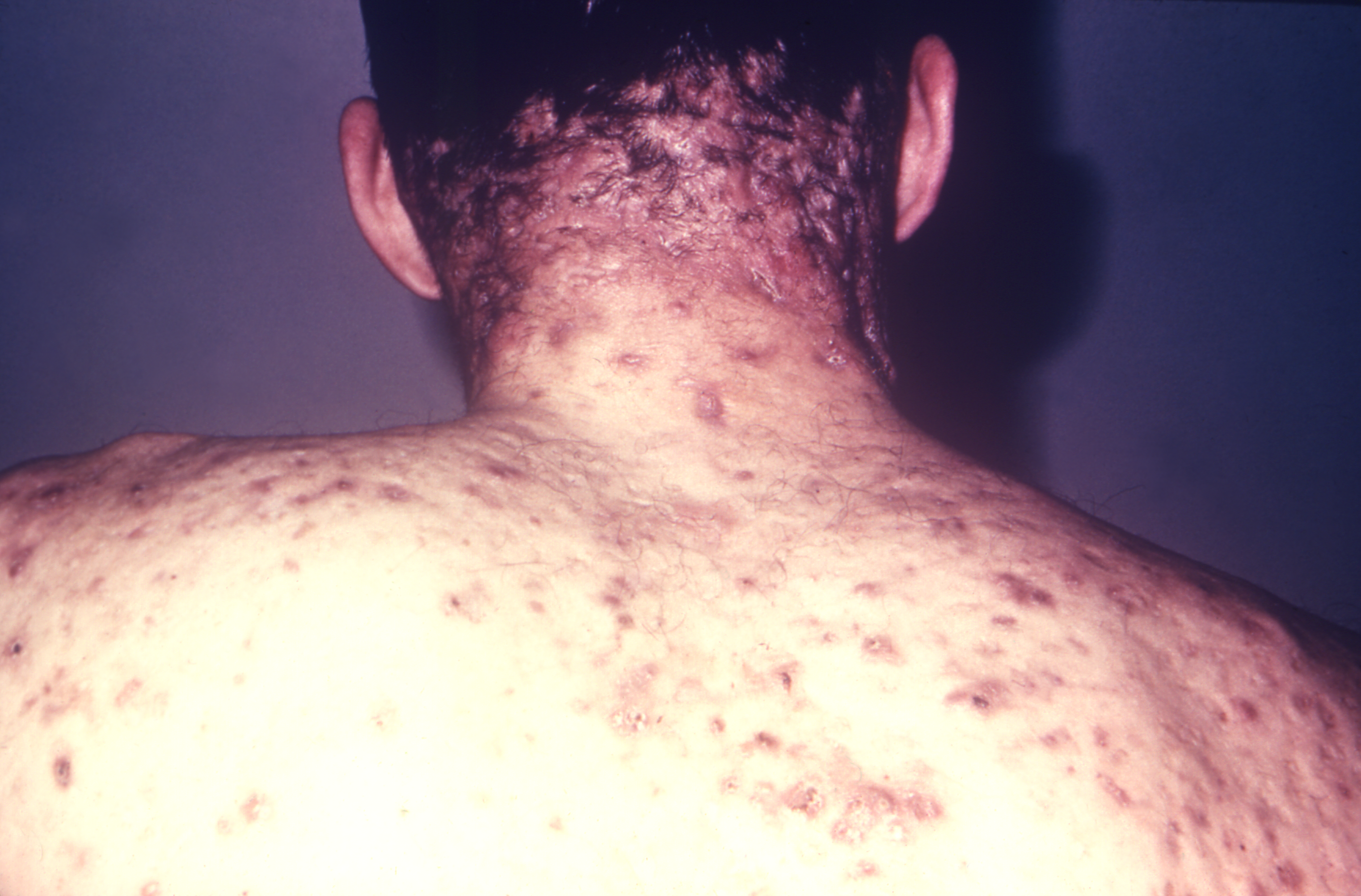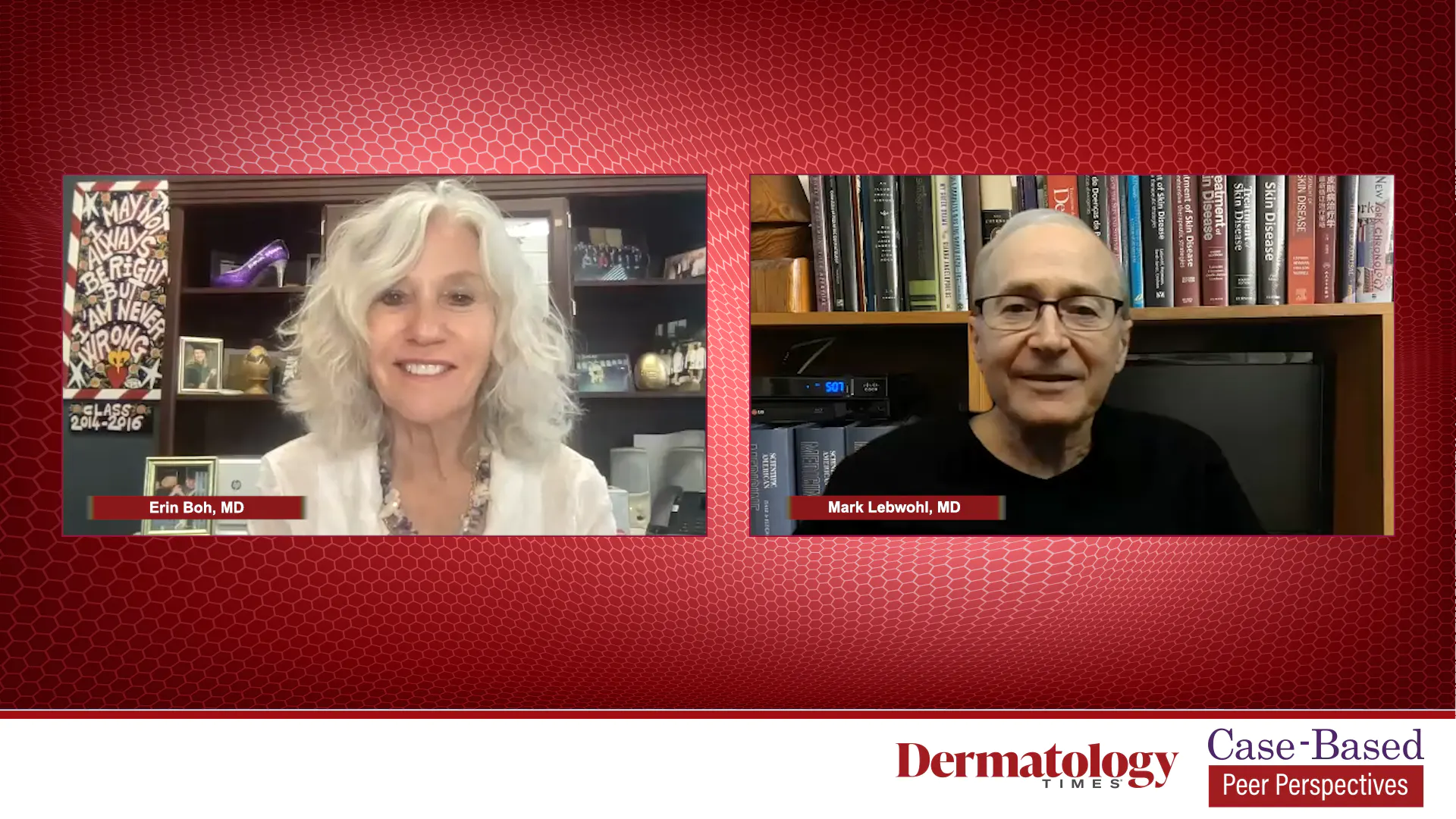- Acne
- Actinic Keratosis
- Aesthetics
- Alopecia
- Atopic Dermatitis
- Buy-and-Bill
- COVID-19
- Case-Based Roundtable
- Chronic Hand Eczema
- Chronic Spontaneous Urticaria
- Drug Watch
- Eczema
- General Dermatology
- Hidradenitis Suppurativa
- Melasma
- NP and PA
- Pediatric Dermatology
- Pigmentary Disorders
- Practice Management
- Precision Medicine and Biologics
- Prurigo Nodularis
- Psoriasis
- Psoriatic Arthritis
- Rare Disease
- Rosacea
- Skin Cancer
- Vitiligo
- Wound Care
News
Article
Dermatology Times
Steven Dayan, MD, FACS: Prioritizing Patient Satisfaction in Cosmetic Dermatology
Steven Dayan, MD, FACS, first author behind a recent study involving high rates of patient satisfaction following treatment with botulinum toxin, discusses the importance of placing patient satisfaction at the forefront of cosmetic dermatology.
Steven Dayan, MD, FACS, is a board-certified facial plastic surgeon in Chicago, the director of DeNova Research, a clinical assistant professor at the University of Illinois, and a New York Times bestselling author. Dayan is also the first author behind a recently-published study by Allergan Aesthetics.
The study, published in the Journal of Cosmetic Dermatology, is titled, "Self‐perception of natural outcome, appearance, and emotional well‐being after Onabotulinumtoxina [onabotA] treatment for upper facial lines: Post hoc analysis across age and gender."
The study found that 30 days after receiving treatment with onabotA, 90.5% of patients reported being either mostly or very satisfied with the natural-looking outcomes of the treatment. This level of treatment satisfaction was sustained by 80% of participants during the year-long study period. Furthermore, more than half of participants reported meaningful improvements to their self-perceived appearance and psychological well-being as a result.
Read the Dermatology Times® report on this study here.
Dayan spoke with Dermatology Times to discuss the importance of this data and the importance of placing patient satisfaction as highly as safety and efficacy in cosmetic dermatology.
Transcript
Steven Dayan, MD, FACS: I’m Dr. Steven Dayan, and I'm a board-certified facial plastic surgeon in Chicago. I am the director of DeNova Research. I'm also a clinical assistant professor at the University of Illinois, and I'm a New York Times bestselling author.
Dermatology Times: Can you speak to the significance of these high rates of patient satisfaction from this study?
Dayan: I can, and it's my passion and something that I've been exploring for over 20 years. When I first started writing about this, it was like, ‘What? This product is more than just removing wrinkles?’ I'm like, ‘Yes; the wrinkles are just the beginning of it.’ We have to see that we're doing so much more than just removing a wrinkle.
We've had multiple papers written that show the self-esteem influences of cosmetic medicine, Botox in particular, but I think this really just nails it and solidifies it, and you can see it. The satisfaction rate here is meeting expectations up to 99% of patients, millennials, meeting expectations. How many things in life are your expectations met 99% of time? It's hard to even consider that. Maybe pizza? But other than that, there's very few things that expectations are met. It's something that we've recognized in the clinic, and I think you're seeing it in this study.
I think the second thought is, other than meeting expectations, which is really important, there's something about a natural look. It is the number one concern I get when I walk into a patient room. ‘Dr. Dayan, I don't want to look like all those other women that I can tell that something done. I can always tell when someone has something done.’ I'm like, ‘No, you won't.’ I spend half my consult telling them, ‘Don't worry. You look natural.’ Now we have data, hard evidence, clinical evidence, the science that shows that you will look natural, even if I treat you on label, and you're looking up to 64 units in some of these patients. There's many times when doctors are like, ‘Oh, no, I'm going to treat you with less, because I want to keep you looking natural.’ The reality is, if you do it on label, you're going to get 90% or morepatients who are going to look natural. Men are a little bit lower than women and millennials, but still 85%. That's pretty high, that they're going to be satisfied that they look natural. That's the second thing.
The third thing that I think is really important is self-esteem, the emotional impact. We all know, those of us have been treating with this for a long time, as I mentioned a little bit earlier, is that these patients come in, they get treated and afterwards, they go, ‘Oh, Dr. Dayan, my life has been so much better. I got a new job and I'm happier.’ And it's beyond what you would expect from just looking better. We know it doesn't cross the blood-brain barrier, but we do know these patients feel better about themselves. There's a whole host and wealth and a significant amount of literature that shows that expressions lead emotions; you frown, you become angry, you smile, you become happy. It is intuitive, and it makes sense that if you can't frown, you become happy. And is that the mechanism of action? It's hard to say because this paper doesn't look at that. However, you can certainly look at that and say ‘Yes, these patients are happier. Their mood and self-esteem are going up when they get this treatment.’ Once again, the numbers are really high 40% to 88% of patients in the study who got an improvement, a natural look, met expectations, and they feel better about themselves. What else does that? Not just in medicine, but in life in general?
Dermatology Times: Why is it so important to look at not only safety and efficacy but patient satisfaction and well-being?
Dayan: If you're asking me, I put that first. I think it is the most important question to ask and the most important parameter, hands down. That's my bias, and that's probably why I'm the first author on this, because I think those in the industry know that I've been talking about that. The reason why is because what makes us successful, both as an individual, and as a field, is not about how we make people look. It's about how we make people feel. They're related, but they're different. I can make a person a perfect face, a perfect nose, but if they're not happy, I fail. I have many, many anecdotal stories of people who've had scars or other issues, and I do the smallest little treatment, and they are so happy, they're skipping out here. I'm like, ‘I don't see a difference.’ But to them, it makes a difference. So obviously, there's a limit;I'm not going to make someone look ‘crazy,’ or I'm not going to do unnecessary surgery. But there's a component here of bias, and that bias is the physician's bias. We've got to park our biases, and park what we think looks good, and listen to what the patient wants, hear them, and help them achieve their goals, not mine. That is where the success comes in our field.
Dermatology Times: How do you hope this data will help inform dermatology providers and inspire future research?
Dayan: I think I want it to help my colleagues, especially the ones getting started saying, ‘Yes, you can treat on label and expect to get really good results,’ and you also have to choose wisely. Remember, a lot of these patients came into this, their self-esteem was already pretty good, and we generally may attract people like that. I'm not taking a population of depressed patients, saying, ‘I'm going to make them feel better.’ I'm taking patients who generally are concerned about their appearance and feel good about themselves, and I'm making them better, so you can feel confident you're going to be able to do that.
As far as further research, I would suggest highly that PROs, or patient-reported outcomes, and even observer-reported outcomes, means what other people think of your outcomes, I think should be a leading, contributing factor to determining approvals in the future. I believe it's absolutely important, whether it's doing any device treatment, and even in our surgical literature, which is very hard to do studies like this in surgical literature, because you can't have placebo control. I think we should put that front and center in our conclusions.
I think there's a couple of caveats. One, I think you have to recognize that all the patients in this trial who reported this were ones who had a 2-to-3 point improvement, so they already had a good improvement, so it's a select group of patients. Two is these patients come in, generally speaking, and I mentioned before, their higher self-esteem in the beginning, but still, they're getting significant improvement. That'sprobably a model for our general population. But 3, and probably most importantly, is that most of these investigators are high-experience injectors. They know where to put it, and they're using these higher doses and getting great results. Training is critically important to getting these good results. I can train any doctor to put botulinum toxin, or filler for that matter, into the face, and get a 2 point, 3 point improvement, but I can't train them how to do it in such a way so that patients feel better and look better. That takes a skill set, and it doesn't come overnight. It takes good training, quality training, and that is critically important if you want these results. You've got to be well trained. You have to understand not just the anatomy, but the expressions and emotions of the patient.
[This transcript has been edited for clarity.]

Newsletter
Like what you’re reading? Subscribe to Dermatology Times for weekly updates on therapies, innovations, and real-world practice tips.





























